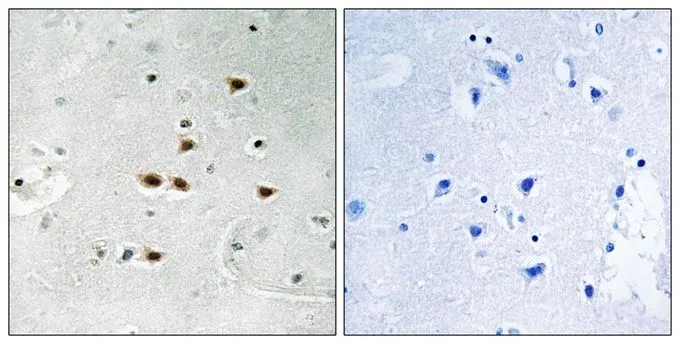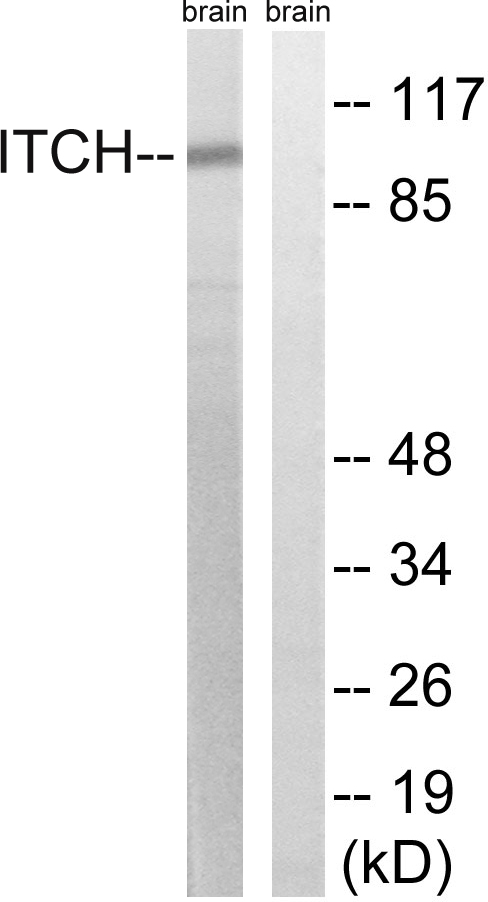
IHC-P analysis of human brain tissue using GTX55343 ITCH (phospho Tyr420) antibody. Left : Primary antibody Right : Primary antibody pre-incubated with the antigen specific peptide
ITCH (phospho Tyr420) antibody
GTX55343
ApplicationsImmunoHistoChemistry, ImmunoHistoChemistry Paraffin
Product group Antibodies
ReactivityHuman
TargetITCH
Overview
- SupplierGeneTex
- Product NameITCH (phospho Tyr420) antibody
- Delivery Days Customer9
- Application Supplier NoteIHC-P: 1:50-1:100. *Optimal dilutions/concentrations should be determined by the researcher.Not tested in other applications.
- ApplicationsImmunoHistoChemistry, ImmunoHistoChemistry Paraffin
- CertificationResearch Use Only
- ClonalityPolyclonal
- Concentration1 mg/ml
- ConjugateUnconjugated
- Gene ID83737
- Target nameITCH
- Target descriptionitchy E3 ubiquitin protein ligase
- Target synonymsADMFD, AIF4, AIP4, NAPP1, E3 ubiquitin-protein ligase Itchy homolog, HECT-type E3 ubiquitin transferase Itchy homolog, NFE2-associated polypeptide 1, atrophin-1 interacting protein 4, itchy E3 ubiquitin protein ligase homolog
- HostRabbit
- IsotypeIgG
- Protein IDQ96J02
- Protein NameE3 ubiquitin-protein ligase Itchy homolog
- Scientific DescriptionThis gene encodes a member of the Nedd4 family of HECT domain E3 ubiquitin ligases. HECT domain E3 ubiquitin ligases transfer ubiquitin from E2 ubiquitin-conjugating enzymes to protein substrates, thus targeting specific proteins for lysosomal degradation. The encoded protein plays a role in multiple cellular processes including erythroid and lymphoid cell differentiation and the regulation of immune responses. Mutations in this gene are a cause of syndromic multisystem autoimmune disease. Alternatively spliced transcript variants encoding multiple isoforms have been observed for this gene. [provided by RefSeq, Mar 2012]
- ReactivityHuman
- Storage Instruction-20°C or -80°C,2°C to 8°C
- UNSPSC41116161





